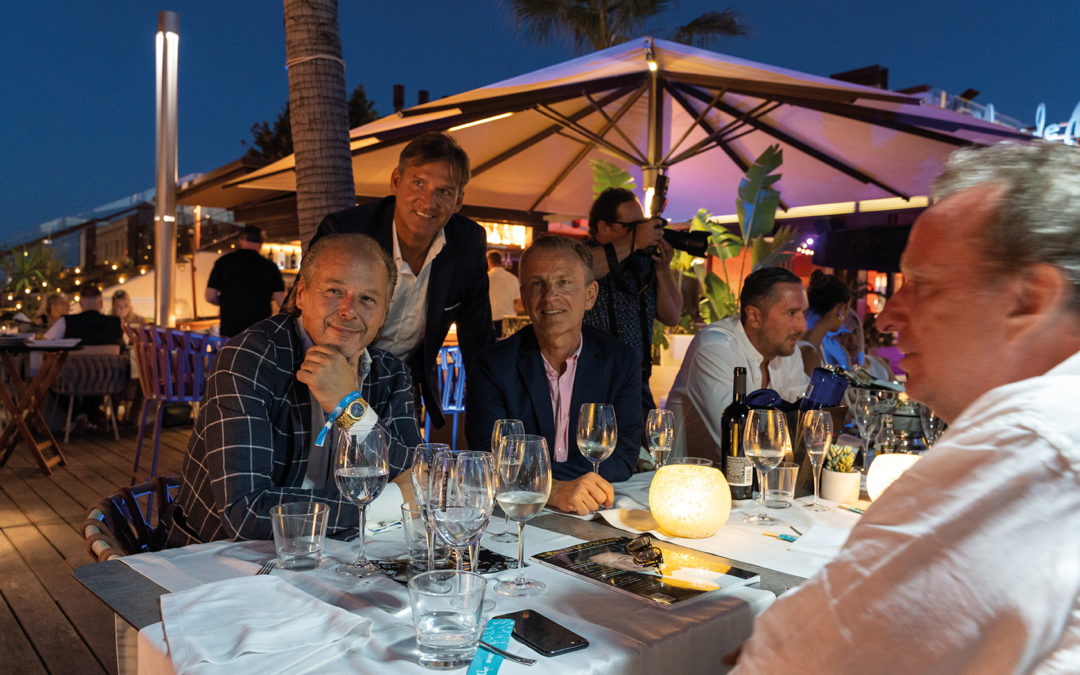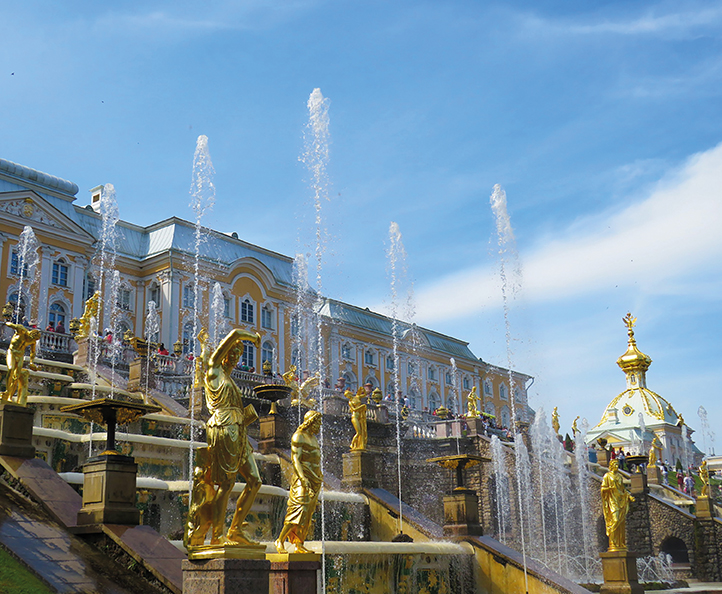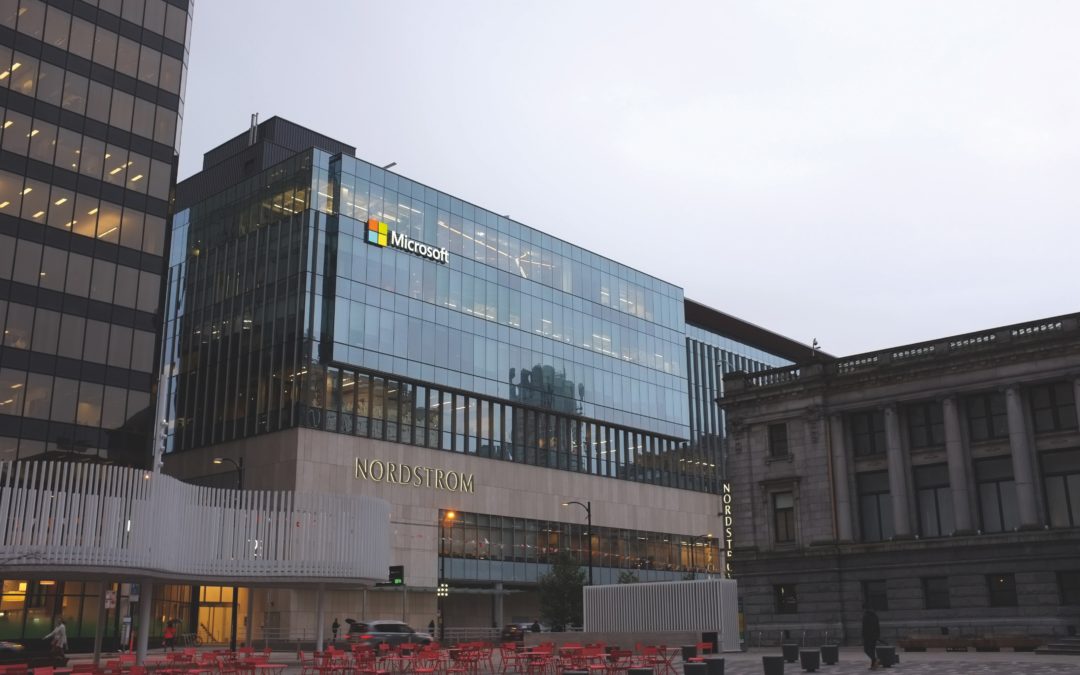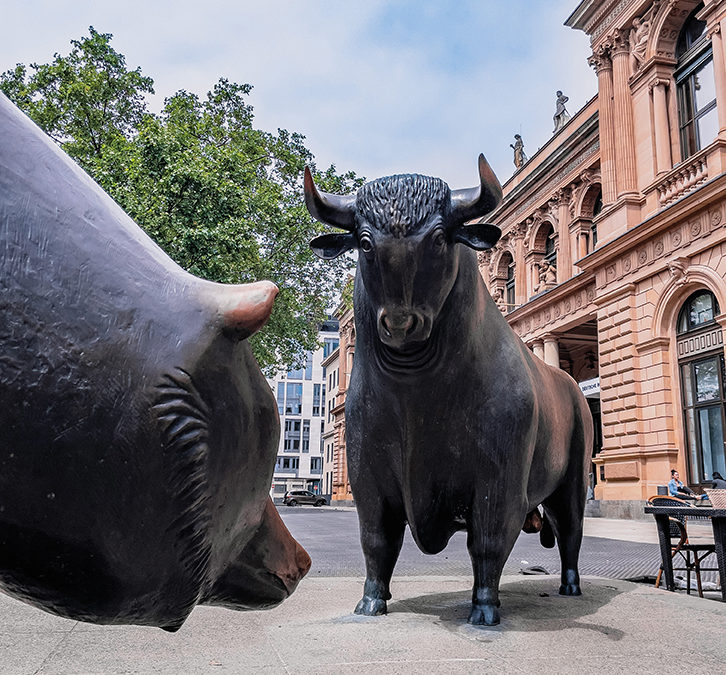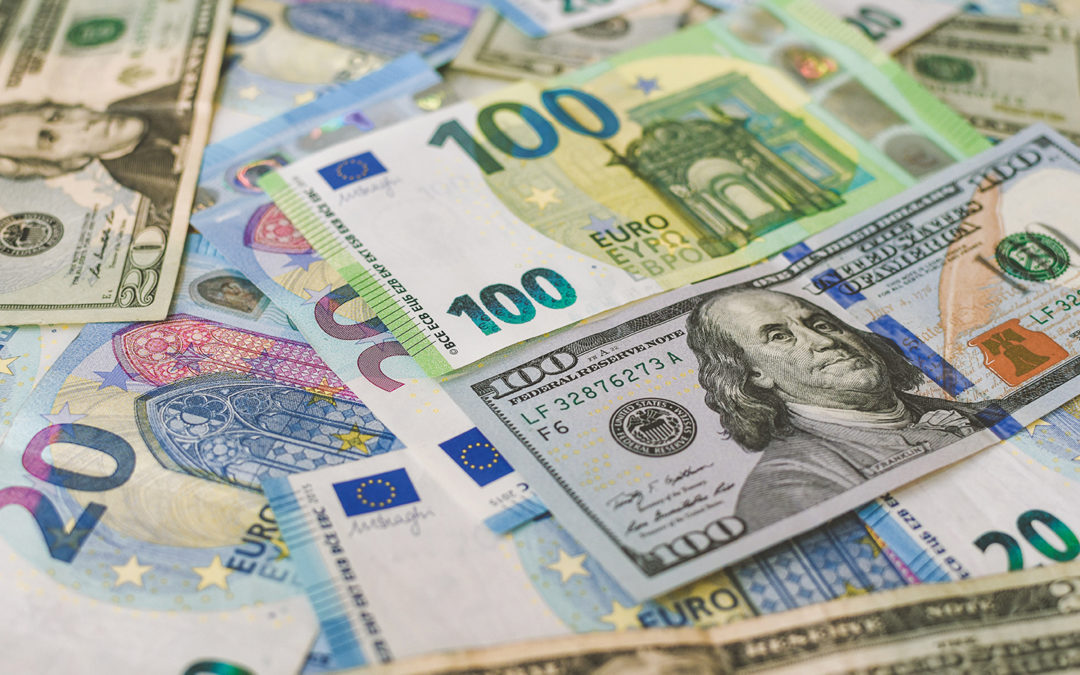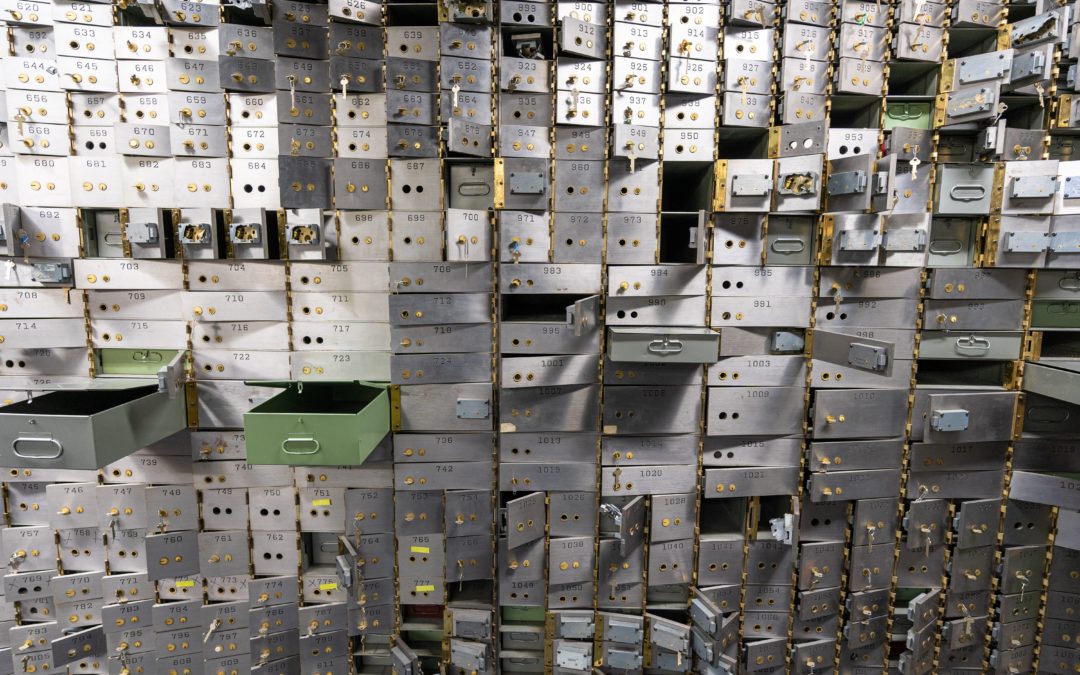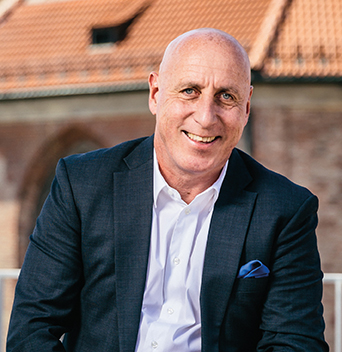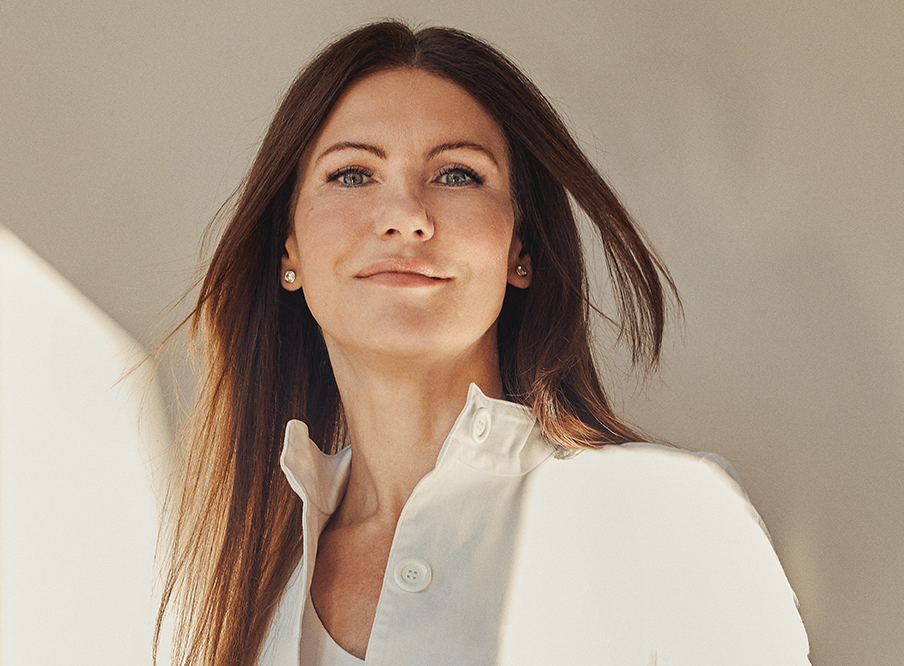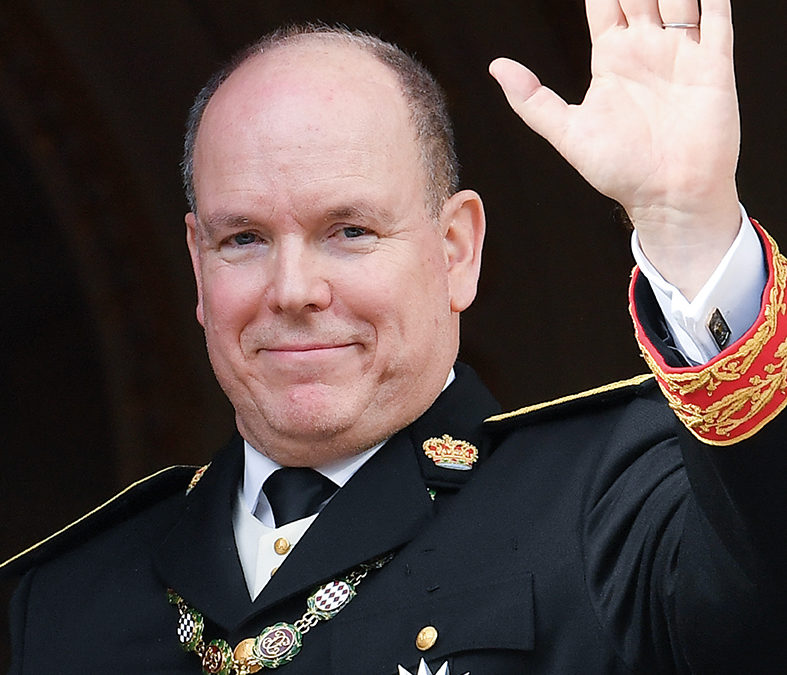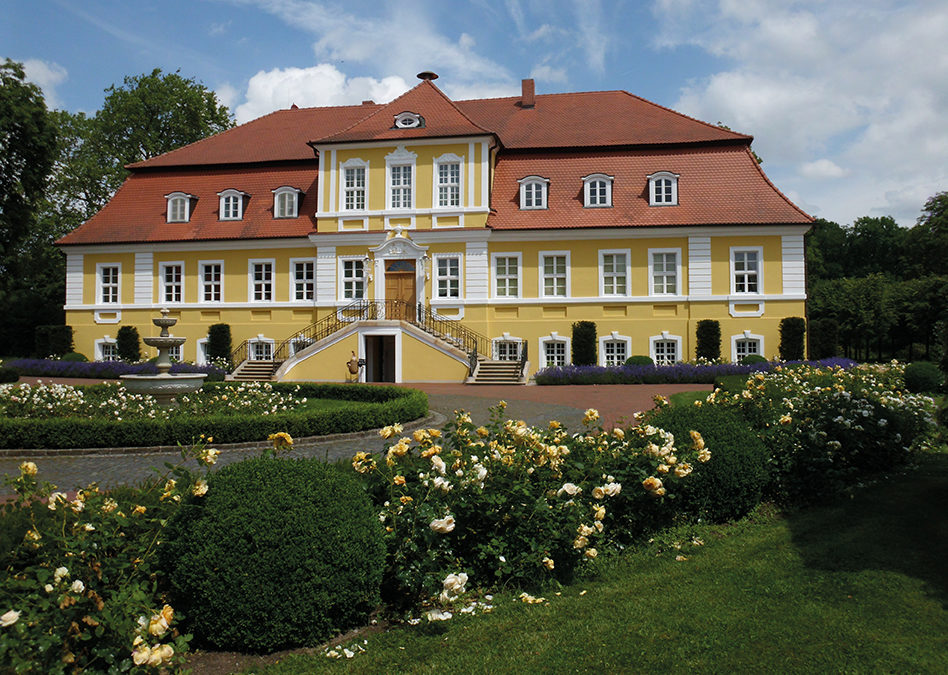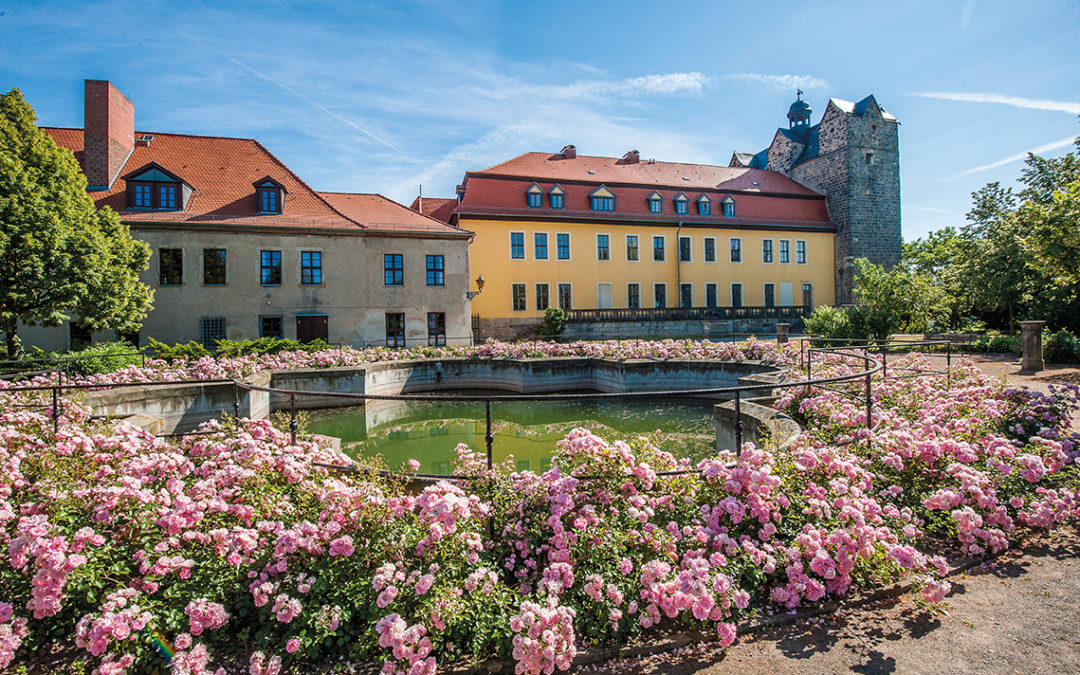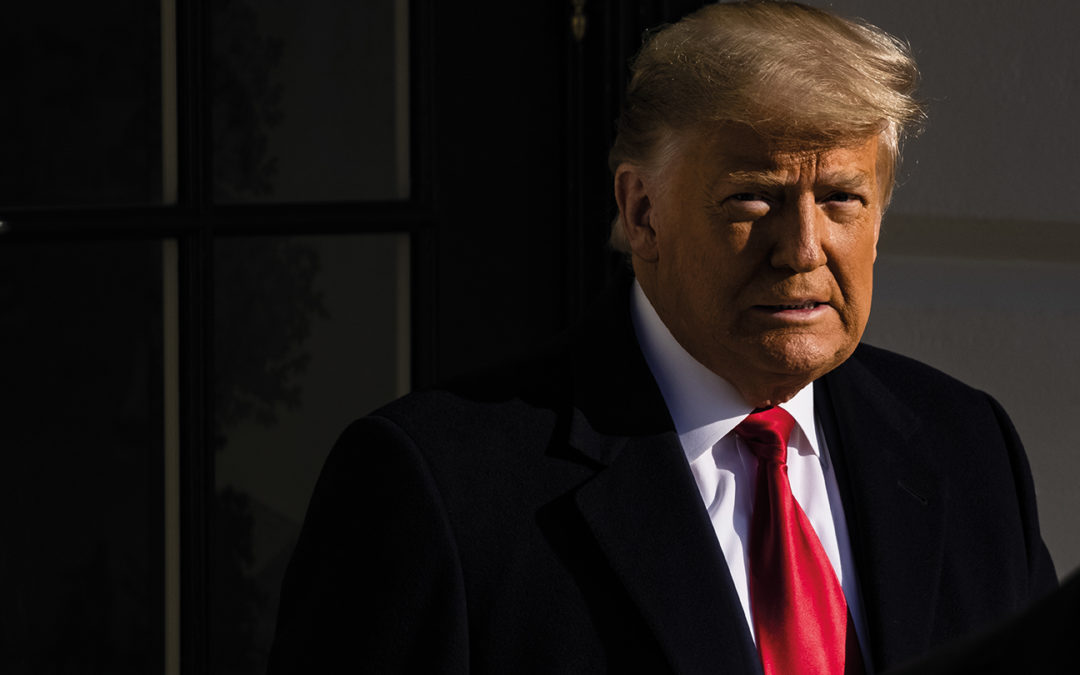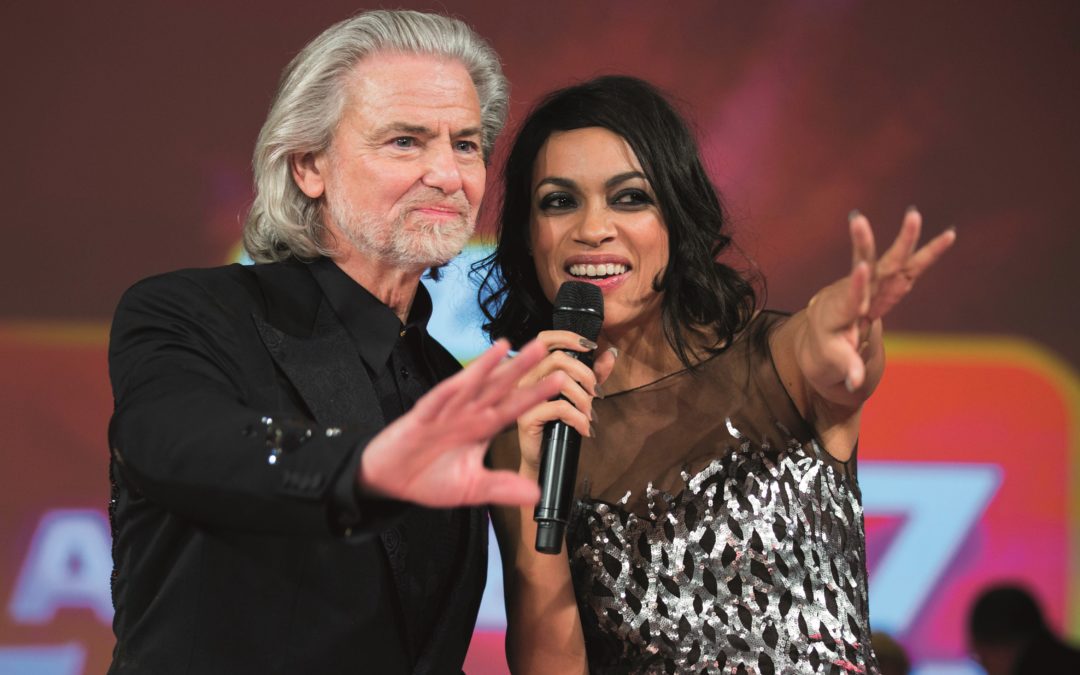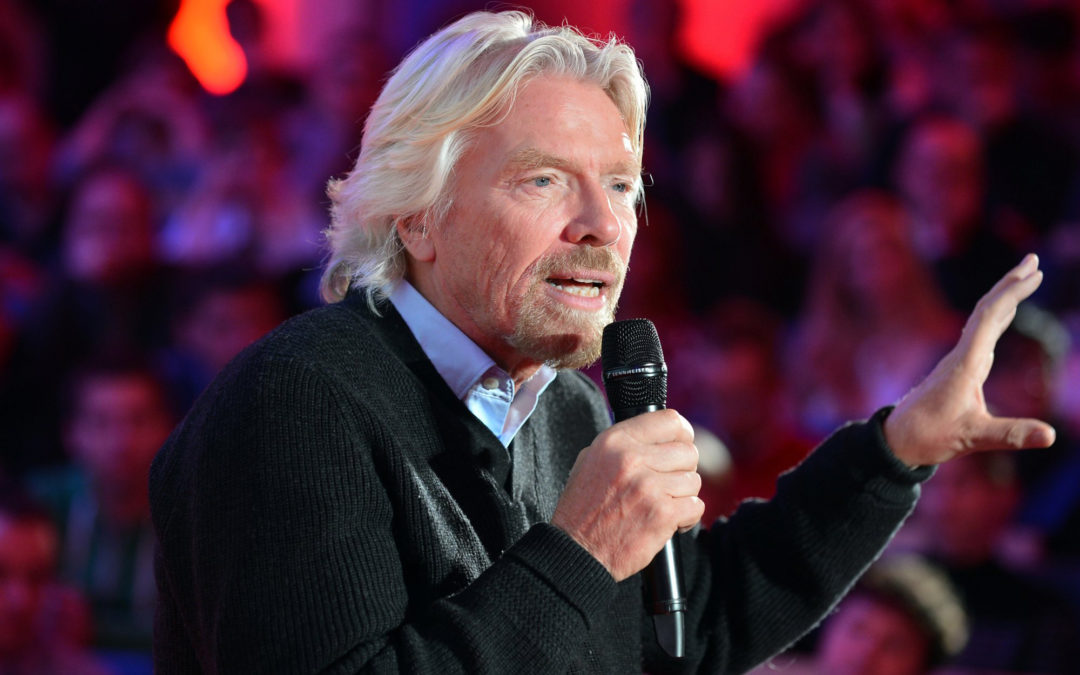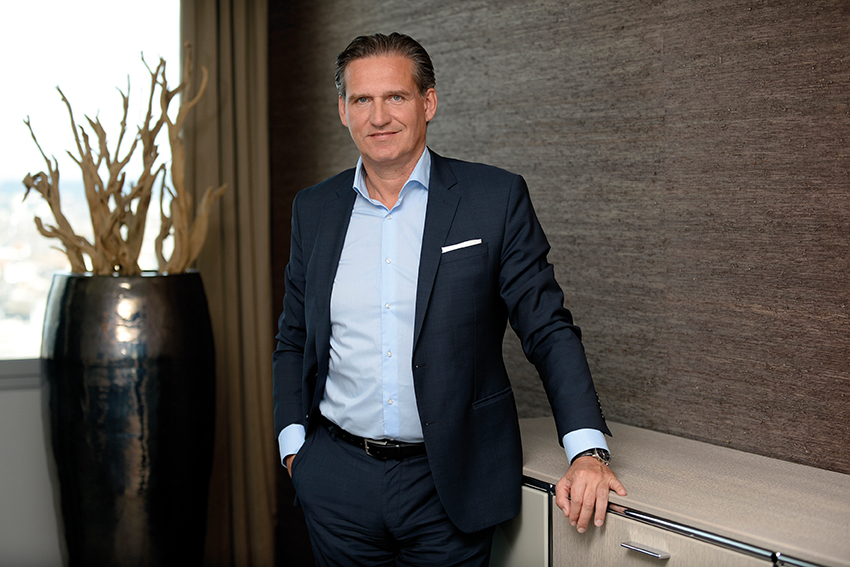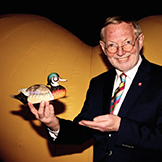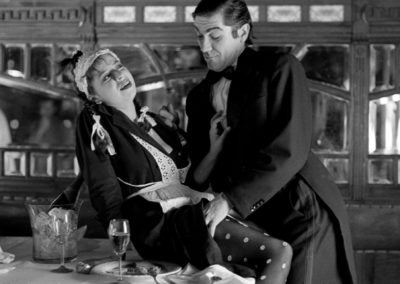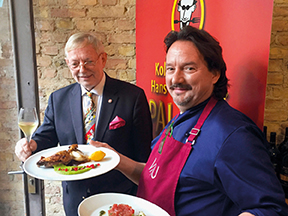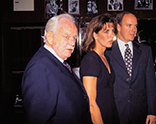mirror tents. Here, star cuisine, top entertainment, comedy and artists meet at the very highest level. It is not surprising that HPW, as he is called by his friends, has seen and experienced a lot in the decades of his work, and the recipe for his biography contains all the important ingredients for an exciting and varied life with all its ups and downs. But let’s take it one step at a time:
Ingredient 1: Quality
At the age of 14, Hans-Peter Wodarz began an apprenticeship as a bellboy in one of Wiesbaden’s best hotels, the “Hotel Rose”. The tips from American guests are sometimes lavish, but after a year the question “cook or waiter?” comes up, which his mother answers for him: “Become a cook, then you’ll always have something to eat”. In 1965, the young Hans-Peter became the best cook in Hesse in his year and, against his father’s resistance (“You’re not going to the enemy!”), wanted to go to England to be closer to his idols, the Beatles. But the stay in Liverpool is short-lived, and after an eight-month diversions via Cornwall, the young chef quickly finds himself on the European mainland.
At the beginning of the 1970s, HPW goes to Munich as Hertie party service manager, where the 1972 Olympic Games are to be held. Clients include the Olympic Committee and other well-known companies. In the same year, his path leads him to the chef of the century Eckhart Witzigmann in the legendary star restaurant “Tantris”, where he dines as a guest and immediately suspects that this is the future. He applies to the star chef and is immediately accepted. In 1975, Hans-Peter Wodarz opened his first own restaurant, “Die Ente im Lehel” (“Duck at Lehel”), and cooked his way to a Michelin star. He then returned to his home town of Wiesbaden, where he opened “Die Ente vom Lehel” (“Duck from Lehel”) in 1979 and was named Chef of the Year by Gault-Millau – one of the world’s leading restaurant guides – in 1982. None other than co-publisher Christian Millau travels from France to Wiesbaden to present HPW with the certificate.
Here, too, presidents, football world champions, Hollywood stars and business giants are quick to lend a hand. The guest books are full of the who’s who of politics, sport and show business. And for almost every dedication, HPW can think of an episode that is touching or funny, in any case entertaining, yet he has never adorned himself with big names, rather the people themselves are important to him, regardless of the celebrity factor. And so it is not surprising that he has collected millions for those in need at countless benefit galas, including for the Gorbachev Foundation, Princess Grace Foundation or the Charité Berlin baby helpline.
Ingredient 2: Creativity
But let’s take a look far back, we are in the middle of the 1980s. The great restaurant critic Wolfram Siebeck notes that the German tongue is learning to walk, there are already a few starred restaurants in the former gastronomic desert of Germany, and star chef Hans-Peter Wodarz’s restaurant in Wiesbaden is well attended every day. The guests dine at the finest and enjoy themselves, but the atmosphere in the restaurant is anything but lively, tending more towards the freezing point than the boiling point. Some of the guests are even born know-it-alls and pull out their wine thermometer to demonstrate to the sommelier that the wine is 0.5 degrees too warm – the sommelier, on the other hand, pulls out his thermometer to prove that the guest is mistaken.
Otherwise, the guests, mostly well-heeled married couples, keep quiet for the sake of style. The patron knows this quite differently from France and Italy. There, families sit at the table, talk and laugh while enjoying the numerous courses. If fun and enjoyment seem to go well together on our neighbour’s side of the Rhine, this is inconceivable at the time. One evening, Hans-Peter Wodarz is fed up with the deathly silence in his restaurant, so he calls the director of the neighbouring Wiesbaden State Theatre and asks him to send over an opera singer and an actor the following weekend, so that they can entertain the guests with performances between the courses, thus creating a more lively atmosphere. The whole thing is a huge success in a short time – and the starting signal for gastronomic events of a very special kind in “Der Ente vom Lehel”: star cuisine meets high-class vaudeville, and that is entirely to the discerning taste of the public. The silence of the gourmets is over.
Just how creative Hans-Peter Wodarz can be beyond the cooking pots was demonstrated in 1976 by the founding of Committee 2000, which had the visionary goal of preparing people for the millennium change, which was still more than 20 years away. Among six regulars at the “Ente im Lehel”, founding members were the composer Michael Kunze, the psychologist Georg Sieber and the journalist Max Schulze-Vorberg. They also inspired the world-famous artists Josef Beuys and Andy Warhol for this unusual project: Beuys provided a specially designed calendar and Warhol a 2000 edition of a silkscreen. To be on the safe side, 2000 magnum bottles of 1975 Krug champagne were walled in in case there was nothing left to drink in the year 2000. Hans-Peter Wodarz’s most famous dish, “Dialogue of Fruits”, dates from his time with Andy Warhol, the first version of which was personally sculpted by the US artist.
No less creative was the idea in 1987 to organise 40 star chefs to celebrate the 40th birthday of Bernhard Paul, the Roncalli founder and HPW’s companion at the time. The first large-scale attempt at a restaurant theatre was launched in the tents of the Roncalli Circus. HPW organised the event with the legendary gourmet caterer Gerd Käfer, where Bernhard Paul’s favourite dish Wiener Schnitzel was served by the 40 star chefs.
Ingredient 3: Optimism
Then Hans-Peter Wodarz’s success story continues, first in 1990 under the title Panem et Circences. The reception in Germany is so great that HPW wants to expand internationally: in 1992 he goes to Barcelona for the Olympic Games. His next project, Pomp, Duck and Circumstance, follows in 1993, and later he takes it to the USA to New York and in 1996 to the next Olympic Games in Atlanta. After that, HPW ends its activities abroad and concentrates again entirely on Germany. With the help of the Canadian Guy Laliberté, the founder of the world-famous Cirque de Soleil, he starts his shows in Germany – also with Franco Dragone, one of the most successful theatre and show directors, who was already responsible for the first show in 1993.
The ZEIT headline at the time was “Wodarz now does children’s birthday parties for adults!” With this recipe, Hans-Peter Wodarz has been delighting audiences again since 2008 as a member of the Palazzo Family with top restaurant and variety shows, who enjoy the show under the culinary direction of co-host, star chef and head chef Kolja Kleeberg.
Ingredient 4: Humour
When HPW narrates, the listener immediately senses that he has a great sense of subtle humour. Unagitated, but with alert eyes, he tells lively stories and you notice that even after many years, the many anecdotes still amuse him and make him laugh. In general, humour may well be the most important ingredient in an eventful life, and so at last, after two years of standstill because of Covid, he is on his way to new heights:
From November 2022, the Palazzo show will finally start again in five cities: Berlin, Hamburg, Stuttgart, Nuremberg and Vienna are on the culinary map. “Demand has already been very high since spring,” HPW notes with anticipation. “People finally want to get together again and experience something together, have fun and enjoy. Star gastronomy and top variety shows are excellent ingredients for a successful evening,” he is convinced. Company and Christmas parties as well as New Year’s receptions are also individually organised at the Palazzo.
The new show is called “Escapades”, which is directed by artistic director Steffi Haberl under the direction of Verena Schmidt and Aitor Basauri. The team has already successfully directed several Palazzo shows together. In the new 2022/23 programme, comedy and cuisine are blended into a dazzling synthesis of the arts. Side by side, breathtaking artists inspire ingenious comedians and great musicians who use their various talents to the full. Many of the artists have had international engagements with the world-famous Cirque du Soleil.
And for those who have acquired a taste for HPW’s colourful life, the entertainment gastronome has another surprise in store. In 2023, he will not only turn 75 years young, but will also publish a book of memoirs in which he describes his exciting life story. And no one knows better than Hans-Peter Wodarz: Duck’s well, all’s well!
Contact: https://www.palazzo.org
